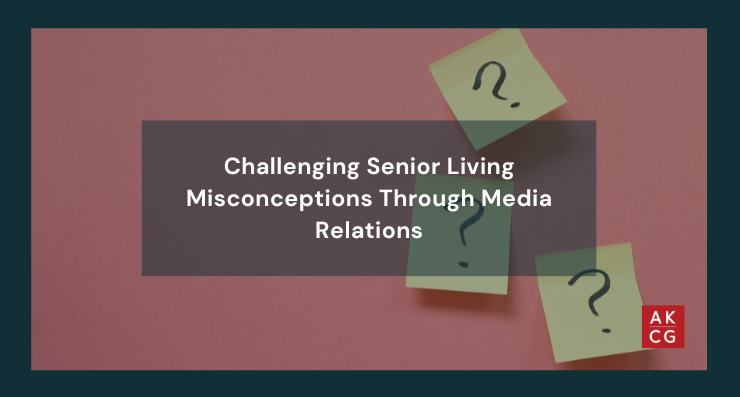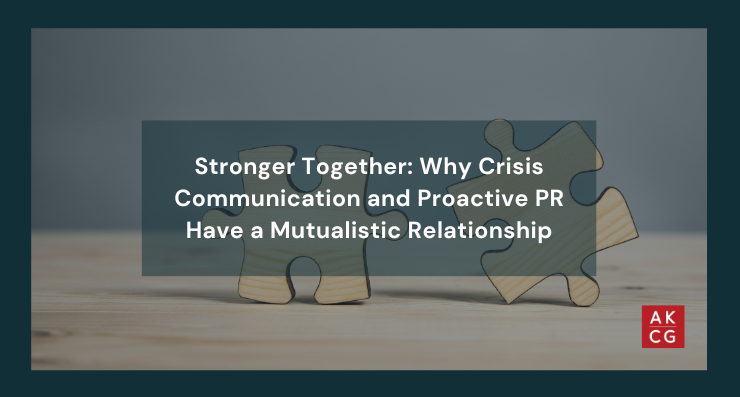Ask yourself: who trusts you?
In a crisis, trust is currency – trust in your organization, its mission, its integrity and, often, its leadership. The organizations best positioned to weather a crisis are the ones that can cash in on a longstanding and hard-earned bank of trust and goodwill, if ever needed. While this is a vital aspect of reputation management, you’d be shortchanging yourself to ignore the importance of a well-thought-out crisis communications plan. (Sick of this metaphor yet?)
A good crisis communications plan is honest, actionable and easy to use.
But why build a plan at all?
It’s hard to understate how much speed matters in responding to crises. Our media landscape and social climate demand urgency while rejecting complexity, nuance and critical analysis. Your first impression can often be your last chance to influence attitudes and shape perceptions – even more so when faced with a pivotal moment in your organization’s history. You can wait to respond to issues as they arise, but every minute wasted amplifies risk to your reputation and your bottom line. While you huddle with key leadership to draft and refine a thoughtful and strategic message, your most important stakeholders, as well as media, will gladly grasp on to the first source of information capable of satisfying their curiosity and hunger for information, no matter how disreputable or ill-informed that source may be.
So how can you possibly prepare a timely, thoughtful, nuanced and authentic communication that needs to go out, like, yesterday? By planning ahead.
Effective crisis communications planning can go a long way toward ameliorating or, sometimes, avoiding altogether the damage to your reputation a crisis would cause. And as much as the words “crisis planning” might make you want to run and hide, it’s essential to face issues head-on. That starts with building an effective crisis communications plan long before a crisis strikes. A good crisis communications plan is honest (about your organization’s shortcomings, history and vulnerabilities), actionable (to provide practical use in the moment) and easy to use (for those who won’t think about it until they really need it).
To mitigate risk and maintain trust and goodwill, here are five key tips to consider when thinking about how to build your crisis communications plan.
Widen your lens.
To start, we must establish a shared understanding of what a “crisis” really is. It’s not always what you think. Start by identifying potential scenarios that pose significant risk to your organization and segment your plan accordingly. While public relations crises are traditionally thought to be limited to major events or tragedies – natural disasters, violent incidents, criminal activities – the reality is that a crisis can be any event, big or small, that has the potential to negatively impact your organization’s reputation or its ability to operate.
Crises of any size and shape can have deep and major impacts on your reputation, especially if left unaddressed. Important situations to consider in your crisis PR plan include, but are not limited to:
• Regulatory or ethical violations
• Challenges to quality of services
• Human resources challenges
• Financial hardships or shortfalls
• Infrastructure problems
• Criticisms of leadership/management
When planning for crises, remember to give ‘small’ issues the attention and preparation they deserve, and you might save yourself from being caught flat footed by a situation you could have foreseen. Crises may be unexpected, but they should never come as a surprise.
Collaborate and coordinate.
In many situations, your communications strategy may need to align with and factor in a number of elements that are beyond your control: regulatory requirements, legal implications, industry best practices or likely actions from law enforcement. While it would be unrealistic to say you should (or even could) prepare for every nuance and outcome a crisis may bring, you can save yourself valuable time by involving other leaders and experts in the planning process.
Consult with law enforcement and first responders to ensure your communications for emergency events address proper protocols and, where needed, defer questions to them. Work with legal counsel to review and pre-approve templated language you may need to use in a given situation; this will save time and help limit legal risk. Coordinate with human resources, compliance personnel and other administrators to align your plan with the organization’s policies, and anticipate actions it may take, such as investigations, suspensions or dismissals. Also, seek out leadership and personnel who have substantial institutional and historical knowledge about your organization; they may have insights about lesser-known issues that have been long brewing.
Keep in mind, though, that while certain decision-makers and experts can be a resource, it’s usually good to keep the planning group small and nimble.
Keep it simple and stick to the facts.
In your planning, start by identifying conceivable scenarios that are either particularly likely to occur or particularly risk intensive. While it will take some time to create this list, such an index of scenarios will offer a sizeable cross-section of potential issues for you to pull from when a real-life situation straddles two or more topics. Once you have your topics, prepare message templates in advance that, broadly, reflect language and messages and facts you might need or want to communicate in the moment. Importantly, be careful to not speculate, guess or speak on behalf of others in your messaging. Honesty and transparency are your guiding stars.
Keep it actionable.
Many crisis communications plans often start with pages of dense communications theory. No one will have time to read this when a crisis hits, and an immediate response is needed. Instead, your plan should be digestible and manageable. A strategy to achieve this is to plan message templates in advance. Use the list of potential challenges your organization might face, and think about how you would address, resolve and communicate them. In reality, you may only be able to plan as far out as the first few minutes or hours of a crisis. Crises evolve too quickly and too unpredictably to forecast what will happen days or weeks down the road. But every bit helps.
Plan for what you want to say, but, just as importantly, plan for who you want to say it and how. Identify relevant spokespersons far in advance, those with the knowledge, seniority and composure to answer difficult questions and speak on behalf of the organization. Map out the most important audiences and appropriate channels of communication you will need to consider in your communications strategy. And think through what questions your stakeholders will have for you in this moment.
It is important your plan includes concrete steps and actions to address each potential crisis. When it comes to crisis response, your stakeholders will value your actions more than words.
Keep it handy.
Building a crisis communications plan can be taxing both emotionally and psychologically. While you hope you’ll never need to use it, resist the temptation to leave it sitting, untouched, on a shelf or in a file.
Words matter, and the first words matter most. To communicate with speed and accuracy, your crisis communications plan should be easily accessible. If your organization faces a crisis, you (and, importantly, others less familiar with your plan) will not have time to search for it. Instead, ensure your plan is updated frequently (perhaps monthly or quarterly), and familiarize leaders and spokespersons in your organizations on where to find it and how to use it. The most manageable way to do this is to build your plan piece-by-piece over time.
A good crisis communications plan can help you weather the first few minutes or hours of a challenging situation. But an experienced crisis counselor and crisis management team can help you see the pitfalls that might lie ahead of you. Call on the experts that can help guide you through these most pivotal moments in your organization’s history.




